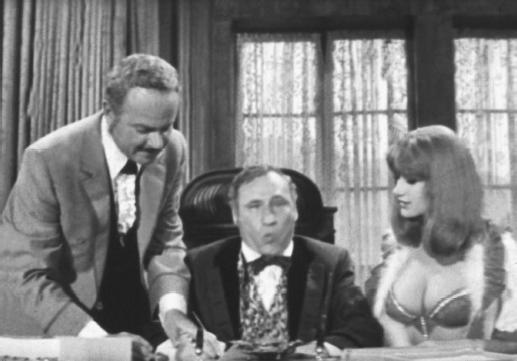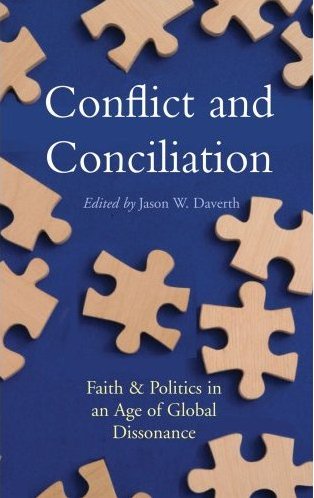It's good to be King
With the onset of another episode in administration malfeasance, Bush chose the site of a previous scandal to answer questions regarding his commutation of Libby’s prison sentence. When asked about his decision, our Dissembler-in-Chief told reporters, “I had to make a very difficult decision. I weighed this decision carefully…I thought that the jury verdict should stand. I felt the punishment was severe. So I made a decision that would commute his sentence but leave in place a serious fine and probation. As to the future, I, you know, rule nothing in and nothing out.â€
If Bush truly believes that the jury verdict should stand, then how could he possibly fail to rule out a pardon? It seems like only yesterday that Bush’s Attorney General was arguing passionately for stiffer minimum sentencing guidelines:
For victims, another key aspect of any fair and equitable criminal justice system is to ensure that those convicted of crimes serve tough and fair sentences. And since 1987, we have had a sentencing system for federal offenses that responded to this demand - and has helped to achieve the lowest crime rates in a generation … But it is inevitable over time that, with so many different individual judges involved, exercising their own individual discretion, in so many different jurisdictions, shorter sentences and disparities among sentences will occur under a system of advisory guidelines.
The DOJ under both Ashcroft and Gonzales have been pushing for stiffer sentencing from the beginning. Specifically, the call has been to simultaneously remove a judge’s discretion to factor mitigating circumstances into sentencing while also removing the barrier of maximum terms by relegating them to mere guidelines. In other words, there would no longer be anything preventing a judge from issuing a 30-year prison terms for a crime with a 5-10 year guideline.
 So I ask you to consider the following two cases: The first is Victor Rita, a man who got snagged in a criminal investigation involving unregistered sale of machine gun parts. Rita was never convicted of the original crime, though he was indicted and found guilty on five felony counts of perjury and obstruction of justice. Rita, a 24 year Marine veteran who served in two wars, received over 35 medals and awards, and is now an elderly man in poor health, is currently serving a 33 month prison sentence.
So I ask you to consider the following two cases: The first is Victor Rita, a man who got snagged in a criminal investigation involving unregistered sale of machine gun parts. Rita was never convicted of the original crime, though he was indicted and found guilty on five felony counts of perjury and obstruction of justice. Rita, a 24 year Marine veteran who served in two wars, received over 35 medals and awards, and is now an elderly man in poor health, is currently serving a 33 month prison sentence.
Sound familiar? I. Scooter Libby was also caught up in a criminal investigation and, while not yet indicted for the original crime (Tony Snow is, to date, the only member of the administration to have even, albeit facetiously, apologized for it), was convicted on 4 out of 5 felony counts of perjury and obstruction of justice. Libby, who was admittedly involved in a scandal which caused immeasurable and irreparable harm to the security of the entire country, was sentenced to 30 months in prison – a term later commuted by the President of the United States.
Two men, both convicted of nearly identical charges, both with similar sentences. Yet the former, whose crimes were no doubt horrific yet finite in scope, is serving time while the latter, whose involvement in the Valarie Plame leak obliterated clandestine operations against groups actively hostile to US interests, benefits from his personal relationship to the White House.
Besides once again bathing in the stench of cronyism, George W. Bush has, with the stroke of his pen, caused unforeseeable harm to the future of this country. For years now, the Bush administration has dismissed critics who complain about inflated sentencing guidelines as well as the ability for courts to consider factors not proven to the jury while ignoring a defendant’s positive contributions and the burden imprisonment would pose on the families. Pish-pash, says King George the W, unless of course the defendant happens to be a loyal courtesan.
According to Law Professor, Ellen Podger, we can expect to see the courts inundated with the “Libby Motion†from defense lawyers expecting their clients to get similar treatment:
The motion will likely include a comparison to the client's circumstances with that of Libby. It will probably also contain language from the U.S. Sentencing Guidelines that speaks to a basic policy consideration of the guidelines being to obtain "reasonable uniformity in sentencing by narrowing the wide disparity in sentences imposed for similar criminal conduct." … And the judges, what will they do with these motions? The activist ones - might follow the activist executive and say - yes this is grounds for departure.
Once again, the administration evades even the faintest glimmer of accountability and, in the process, metes out untold damage in his wake. And we can all take this opportunity to remind ourselves of the immortal words of Mel Brooks - It’s good to be King.










Comments
Re: It's good to be King
Re: It's good to be King
As for the Libby pardon, you have a good point I hadn't considered when you say that Libby was pardoned for a crime Bush was complicit in -- it's as if Bush was pardoning himself. Not much precedent for that. I still think it's small potatoes, though, compared to the $275 million a day our treasury is hemorrhaging in Iraq, which currently totals $450 billion, and the 3,400 American deaths, all for a failed policy. Not to mention the number of Iraqi's pointlessly killed -- a figure which, while disputed, is still substantial even by conservative estimates -- and the destruction of that country.
Re: It's good to be King
But a long succession of presidents has used the pardon power much more broadly, often generating controversy. Gerald Ford issued an unprecedented preemptive pardon of Richard Nixon for his actions in the Watergate Affair. More recently, George Bush the elder pardoned six Reagan administration officials involved in the Iran-Contra Affair, including Defense Secretary Caspar Weinberger.
The most egregious use of the pardon power, though, was Bill Clinton who granted 140 pardons on his final day in office. Particularly troublesome was his pardon of Marc Rich, who some have charged with purchasing his pardon with campaign contributions. Many suspect that others pardoned on Clinton's last day "purchased" their pardons.
Libby is Bush's first pardon in his entire presidency. I think this president has done enough to earn our disapproval, namely his mismanagement of the Iraq war and the total failed response to Katrina, among others. The Libby pardon adds little to this mountain of disaster.
Re: It's good to be King
So many who respond are caught up in the politics and seem to fail to question what can happen next? And, can any good come from Libby’s actions?
Thinking back 12 years ago, I would never have considered that I, a competent, well educated man, would be sitting in prison. That was a life educational experience where I learned, really for the first time, that there are consequences to every unethical choice we make. Though one might think that we can avoid the consequences, the reality is that they are unavoidable and certain. We just don’t know how or when we will face the inevitable.
As a former CPA, through a series of bad choices or serious ethics lapses, I became a white-collar criminal. Now, I am an executive in a publicly held company and an international speaker. I now take the time to review my lessons from prison and write about those experiences so that others may gain benefit and perhaps learn from the experience of others. Some of us learn lessons the hard way. Yet, through sharing the experience of my incarceration and return to productivity, others have stated that they’ve been able to look at their choices in a different and more productive way.
This was a very painful time in my life with many lessons to learn. I learned about punishment and self-esteem based on internal validation rather than external validation. I also learned that many people repeat the lessons of family members gone before them and not realizing they truly had other choices. Now, some twelve years later, I find that the personal growth from the prison experience provided a foundation for help to others. The revelation to speak to high school and college students about ethics has manifested through the establishment of the Choices Foundation, which provides a forum to educate young people on the effects of the choices they make.
Perhaps when the dust settles…Libby can use the experience in a beneficial way for others. Or perhaps, skating past punishment will provide a missed opportunity.